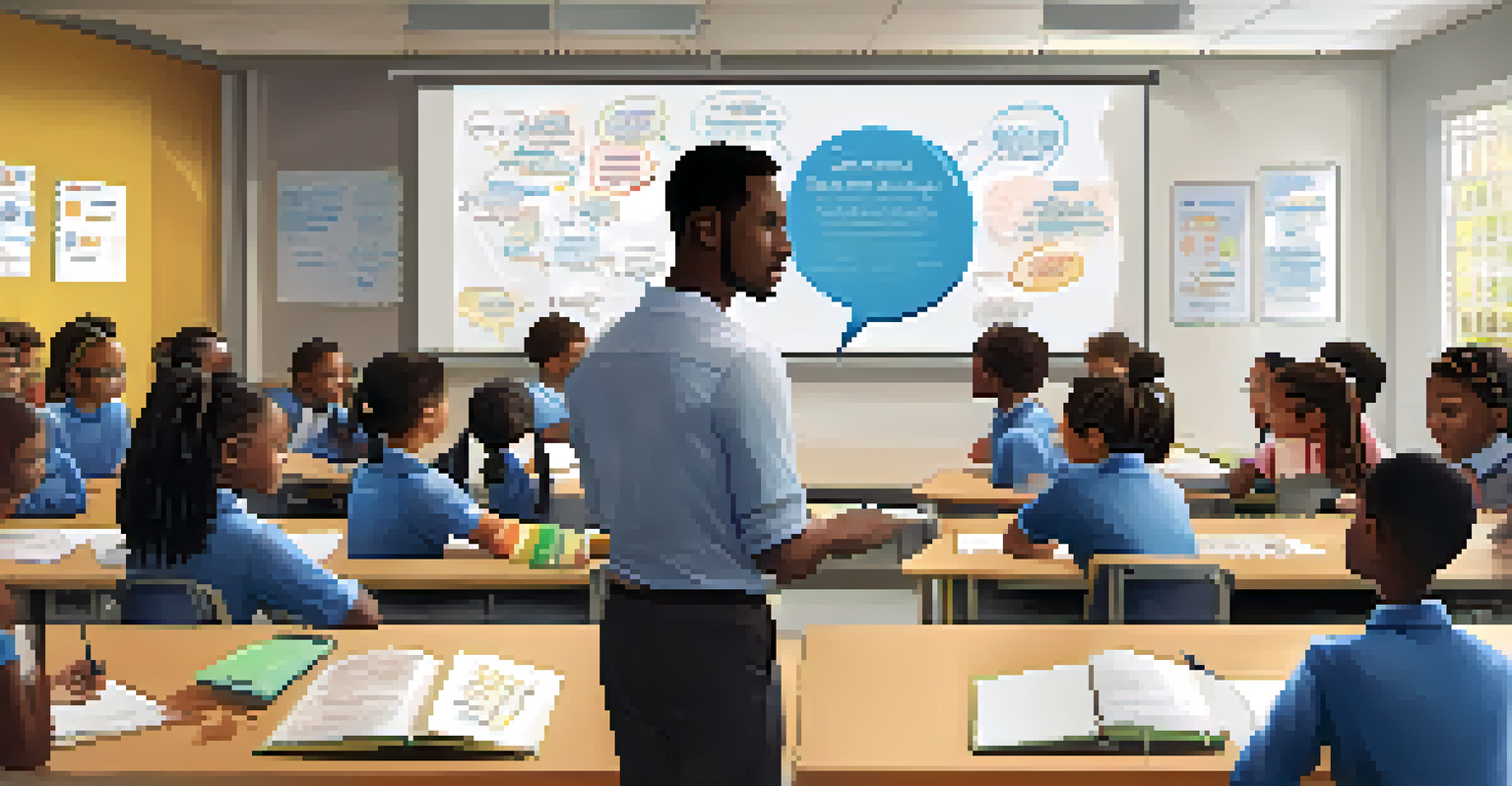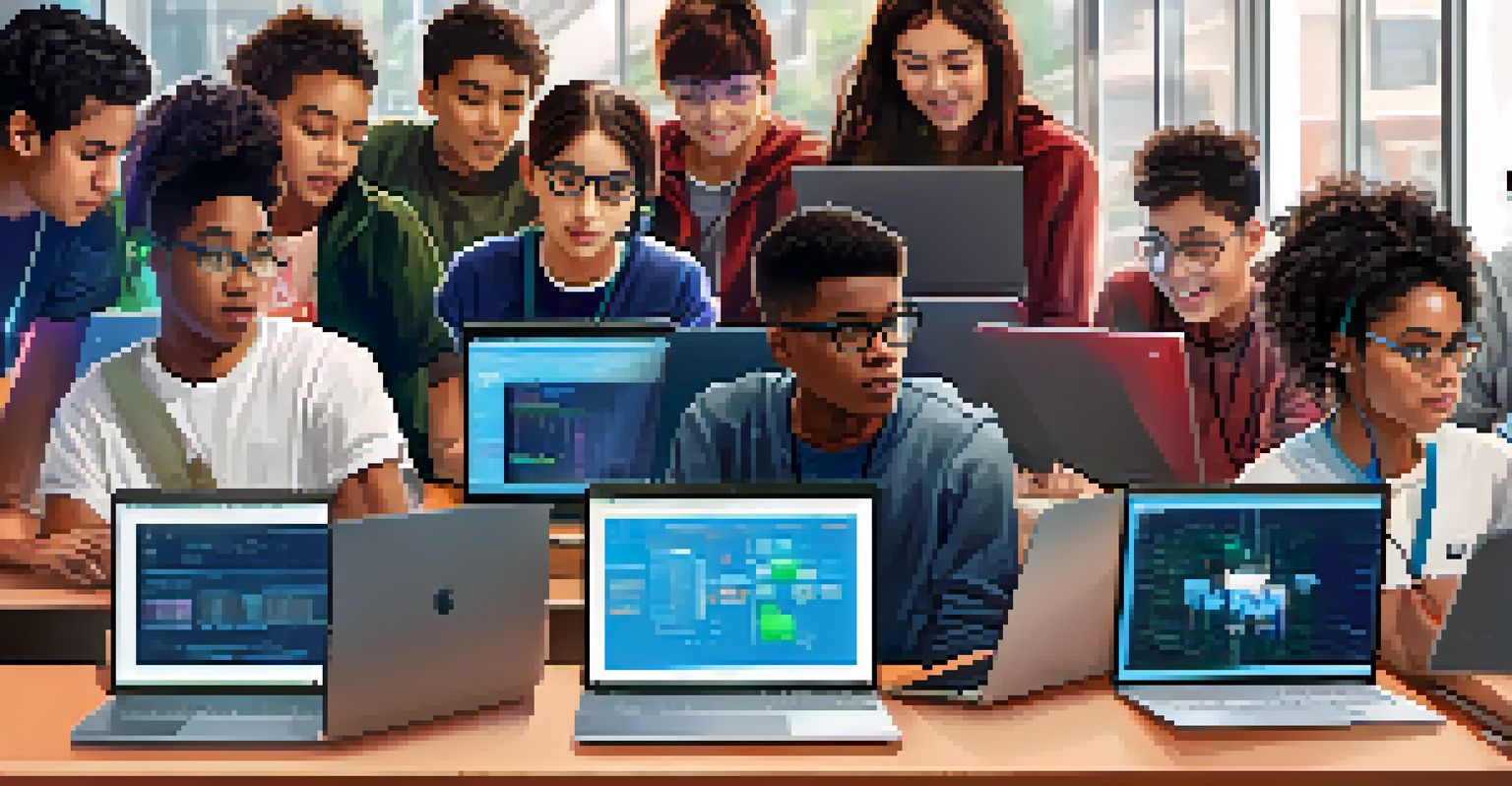Adapting Curriculum for Future Job Skills in Education

Understanding the Importance of Future Job Skills
As we look toward the future, it's clear that the job landscape is changing rapidly. With advancements in technology and shifts in global economies, the skills required for jobs are evolving. Understanding these changes is crucial for educators who want to prepare students effectively for their careers.
The future belongs to those who learn more skills and combine them in creative ways.
Future job skills encompass both technical abilities, like coding and data analysis, and soft skills, such as critical thinking and emotional intelligence. Employers increasingly value candidates who can adapt and communicate effectively in dynamic work environments. By recognizing the importance of these skills, educators can tailor their curriculum to better serve students.
Ultimately, adapting education to focus on future job skills ensures that students are not only job-ready but also equipped to thrive in their chosen paths. This shift is not just beneficial for students, but also for the economy, as a skilled workforce drives innovation and growth.
Key Skills Employers Seek in the Future Workforce
Employers today are looking for candidates who possess a unique blend of technical and soft skills. For instance, digital literacy has become a non-negotiable requirement in almost every job sector. This means that students should be learning how to use digital tools and platforms effectively from a young age.

In addition to technical skills, soft skills like teamwork, adaptability, and problem-solving are increasingly important. Employers value individuals who can collaborate with diverse teams and navigate challenges creatively. By integrating these skills into the curriculum, schools can help students develop a more holistic skill set.
Future Skills Are Crucial for Success
Understanding and integrating future job skills like digital literacy and emotional intelligence is essential for preparing students for the evolving job market.
Furthermore, skills such as emotional intelligence and resilience are gaining recognition as critical components of workplace success. Educators should incorporate activities that promote these skills, preparing students to handle the pressures of modern job environments.
Integrating Technology into the Curriculum
Technology is at the forefront of the job market, making it essential to integrate it into education. This doesn't just mean teaching students how to use computers; it involves embedding technology into various subjects to enhance learning. For instance, using coding in math classes can make abstract concepts more tangible.
In a world where change is the only constant, the ability to learn is the most important skill.
Moreover, utilizing online platforms for collaboration allows students to experience remote teamwork, a common scenario in many workplaces today. By fostering a tech-savvy environment, educators can prepare students for the realities of a digital world.
However, it's also important to strike a balance. While technology is vital, fostering face-to-face communication skills should not be overlooked. A blended approach ensures that students are well-rounded, ready to tackle both digital and interpersonal challenges.
Project-Based Learning as a Teaching Method
One effective way to prepare students for future job skills is through project-based learning (PBL). This method encourages students to tackle real-world problems, fostering critical thinking and collaboration. For instance, a group project could involve creating a business plan, requiring students to research, strategize, and present their ideas.
PBL not only engages students but also simulates the kind of teamwork and innovation that is valued in the workplace. By participating in these projects, students learn to approach challenges creatively and work effectively with peers.
Project-Based Learning Engages Students
Project-based learning encourages collaboration and critical thinking, simulating real-world challenges that are valued in the workplace.
Additionally, PBL can be tailored to incorporate technology, ensuring students are comfortable using digital tools in their projects. This hands-on experience solidifies their learning and prepares them for future job scenarios.
Encouraging Lifelong Learning Mindsets
In a rapidly changing job market, fostering a mindset of lifelong learning is crucial. Students should be encouraged to view learning as an ongoing process rather than a finite journey. This can be cultivated by introducing opportunities for self-directed learning and exploration.
For example, incorporating independent research projects allows students to pursue their interests, nurturing curiosity and initiative. By emphasizing the importance of continuous skill development, educators can help students remain adaptable in their careers.
Moreover, promoting resources such as online courses and workshops can empower students to take charge of their own learning. This approach not only prepares them for the workforce but also instills a sense of responsibility and empowerment.
Collaboration Between Educators and Industry
To effectively prepare students for future jobs, collaboration between educators and industry professionals is key. By partnering with local businesses and organizations, schools can stay updated on the skills that employers are seeking. This information can directly inform curriculum development.
Guest speakers from various industries can provide students with insights into their career paths and the skills that are most valuable. This real-world connection enhances the educational experience and motivates students to acquire relevant skills.
Collaboration Enhances Educational Relevance
Partnerships between educators and industry professionals ensure that curriculum stays aligned with current job market demands.
Furthermore, internships and mentorship programs can bridge the gap between education and employment. These partnerships not only benefit students but also help businesses cultivate a skilled workforce that meets their needs.
Assessing and Adapting Curriculum Effectively
Regular assessment and adaptation of the curriculum are vital to ensure it meets the evolving demands of the job market. Educators should regularly review learning outcomes and seek feedback from students and industry partners. This iterative process allows for continuous improvement.
Using a variety of assessment methods can also provide a well-rounded view of student progress and skill acquisition. For example, incorporating both traditional tests and project evaluations offers a comprehensive picture of student capabilities.

Moreover, staying informed about emerging trends in education and the workforce can guide necessary curriculum adjustments. By remaining flexible and open to change, educators can better equip students for future success.